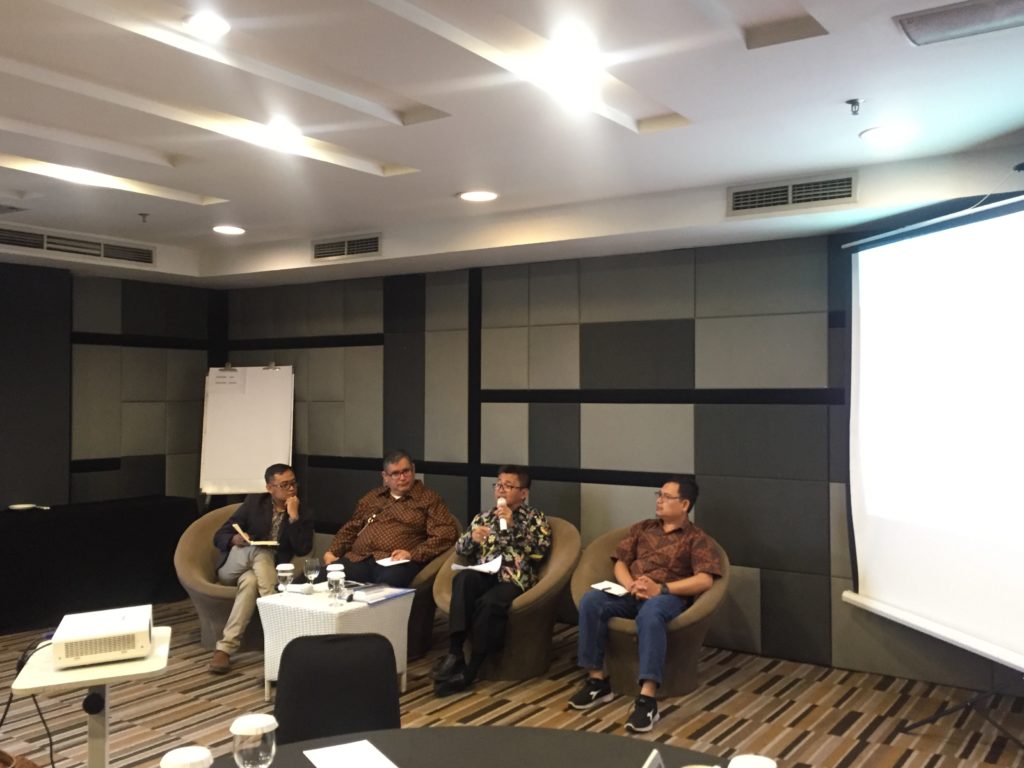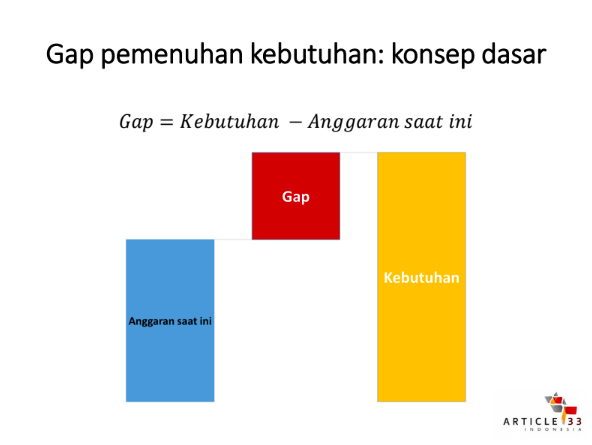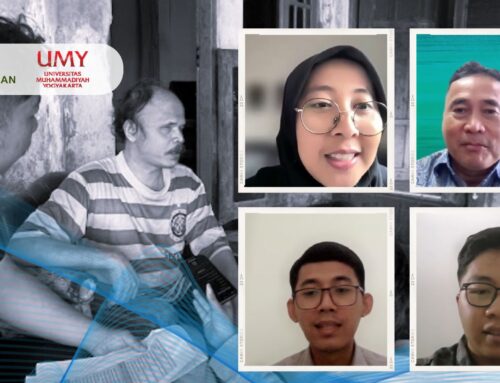The Government of Indonesia’s goal of achieving 12 years of compulsory education has spurred questions regarding how far we are from said target. On Wednesday, 12 September 2018, Article 33 hosted the second FKP event in September entitled Wajib Belajar 12 Tahun, Apa yang Sudah Dicapai? at The Akmani Hotel, Jakarta. Three speakers presented their thoughts: Lukman Hakim (Article 33), Javier Luque (The World Bank), and Subandi (BAPPENAS).
Lukman Hakim presented a study which calculates the amount of funding needed to achieve 12 years of compulsory education in 2022. The study was conducted using secondary data from the National Socio-economic Survey (Survei Sosial Ekonomi Nasional or SUSENAS) and primary data from interviews with local education bureau (dinas pendidikan) officials and school principals in Palu, Central Sulawesi, and its surrounding areas. The costs of education are divided into three categories, which are investment (e.g. buildings, computers, teacher trainings), operational (e.g. salaries, daily operational needs), and personal (e.g. students’ books, transportation costs) expenses. These three cost categories, along with increasing enrollment rates, are projected to add up to around Rp1,684 billion. Comparing this number to the current budget, Hakim believes that a sizeable gap still exists. Therefore, he proposed a financing scheme which focuses on heavy investments on the first three years within the 2018-2022 period.
The gap between the needed amount and the current education budget.
Javier Luque continued the discussion by presenting the progress of Indonesia’s education system in recent years. Within the past 10 years, school enrollment in Indonesia has improved rapidly in all age and socioeconomic groups, making it the world’s 4th biggest education system today. Enrollment has benefited from fiscal policies such as the school operating cost (Bantuan Operasional Sekolah or BOS) and Indonesia Smart Card (Kartu Indonesia Pintar or KIP) to support students to cover additional costs. However, the increase in quality has not been as inclusive for all groups. Although Indonesia is one of the countries with the biggest gains in PISA scores between 2003 and 2015, it is evident that poorer students registered a smaller gain in score. In order to become a high-performing economy, Indonesia needs to speed up its progress. In order to do this, Luque asserted that Indonesia should not only focus on enrollment rates and physical facilities, but rather more on the relevance of the curriculum to increase student engagement and improve links to the employment sector.
Finally, Subandi (BAPPENAS) gave insight into the government’s perspective on the matter. In response to the first speaker, Subandi questioned the accuracy of the calculation as it assumed the achievement of 9 years of compulsory schooling as baseline, which was the government’s former goal. Given the high interregional inequality, such assumptions result to misleading calculations. He also believes that the government should not only focus on increasing the expenditure on education, but rather on improving its allocation and adopting more cost-efficient methods. Subandi also emphasizes the importance of quality, as opposed to just physical infrastructure and access. To achieve this, the current government is directing its policies towards increasing the quality of teachers, access and relevance of tertiary education, access and quality of early childhood education, adult education and trainings, and religious education.
For the complete presentation and Q&A session, please refer to the video and materials provided.






